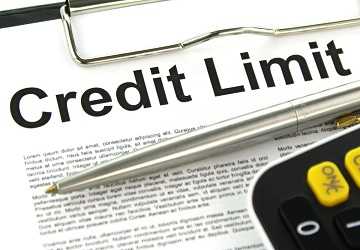How to Build Your Credit Score: Tips and Tricks from Experts in Finance
Having a well-balanced credit score is compulsory when it comes to good financial health. It is one of the top ways to highlight lenders about how you use the credit. It also identifies that better scores on your credit are a guaranteed way to get new credit or loans.
Moreover, high praise means you can have loans at the lowest interest rates, again saving money when saving personal finance. That will open new doors to more lenders looking for people with good credit histories.
Various tricks are simple that can boost your credit card score. Below are the tips and tricks from experts with the highest leverage in this industry, so follow them to improve your credit score.
However, remember, there are no shortcuts, and app steps take some time, so do everything legally.
Review your credit score
The first tip is to review your credit score history. You must pull out a credit report from the most prominent three bureaus: Experian, Equifax, and Transunion. These nationwide consumer reporting agencies can then identify no signs of inaccuracies, fraud, or identity theft on your credit score.
Along with this, you can also check if you have any unpaid balances regarding any loans. It might be a good idea to pay off all loans and debts before you move on to the next step.

Factors that contribute to negative credit scores are the following.
1.A low balance on credit cards.
2.Loan accounts.
3.Old credit accounts if they are interlinked.
4.Missed or late payments.
5.Collections.
6.High credit card balance.
Pay bills on time
You must pay all your bills well ahead when it comes to having a good credit card score. Generally, the payment history makes up most of the credit score, and lenders always peek into it before approving any loans. So making payments on time demonstrates that you are a responsible citizen who can handle finances well. This step will boost your creditworthiness.
Here are some tips and tricks on how you can improve your score.
1.Create a monthly budget for expenses, including bills. It will help you allocate funds for timely payments.
2.Set reminders through a smartphone or calendar. Notify yourself about upcoming bill payments.
3.Consider setting up an automatic bill payment system. The amount can be deducted from your bank account to save you from the hassle.
4.Prioritize essential bills first, such as utilities and credit cards. It will have a more significant impact on your credit score.
5.Explore mobile baking and apps for automatic transfers for bill payments. It is easy and convenient.
Utilize a low credit
There are limits on how much credit you use in the specified time. To keep it simple, low credit utilization will upgrade your credit score. To reach the target, keep a keen eye on your credit card balance while you pay off the full amount each month. If you cannot get this score, you must limit the total outstanding amount to 30% or less of your credit limit. From there on, you can work out the remaining balance and narrow it down to use at a minimum.
Another way to come at this stage is to ask for a higher credit limit. Raising your credit limit means you can use the credit card to its fullest but ensure it does not exceed the limit.
You can increase the credit card limit online and over the phone also.
Become an authorized user
If you have a friend or a relative with a good credit card history, you can ask them to add you or themselves to your credit card account. This step will add credit to your account, and you can also increase the credit limit. If the other person becomes an authorized primary user, the account history will significantly help you. This does not mean that the primary user has to share the credit card or give you the account number; it is each individual's perception, but using separate credit cards is helpful.
This merging will significantly benefit you if you are a newbie with a thin credit file. Moreover, the account limit is increased, allowing you to apply for loans if necessary.
Limit your credit requests
Your credit history is attached to two types of queries, hard inquiry and soft inquiry.
A soft inquiry will not affect your credit score; you do it or ask an employee to do it. The credit card company might also want to check your account to send you pre-approved credit card offers. This type of inquiry will not affect your credit score or history.

On the other hand, a hard inquiry is crucial. Hard questions have a new credit card, loan, mortgage, or other form of credit. More inquiries in a short period will affect your credit card score.
Keep old accounts open
Having multiple accounts is a blessing for many people, especially with a low credit history. If you have an old version you don't use, do not close it because the credit history remains active and will show on your credit report. So closing credit cards while having balance on them is not a wise move. It will lower your credibility and knock a few points off your credit score.
Track your progress through credit monitoring
You can avail of credit monitoring services, showing how your credit score changes over time. This service is usually free and is interlinked to Equifax, TransUnion, and Experian. This service will not only mark the changes but will alert you if there is a new account that you have opened.
Many of the best services will notify you if a possible theft or fraud is linked to your account. You can take possible actions to close the account or report the theft, as it will impact your credit score.
The bottom line
Improving the credit score is the primary goal that everyone must achieve. It will be useful, especially if you want to pay off loans or purchase a vehicle or a house. Improving the score will take up to months, but it is worth it in the end.